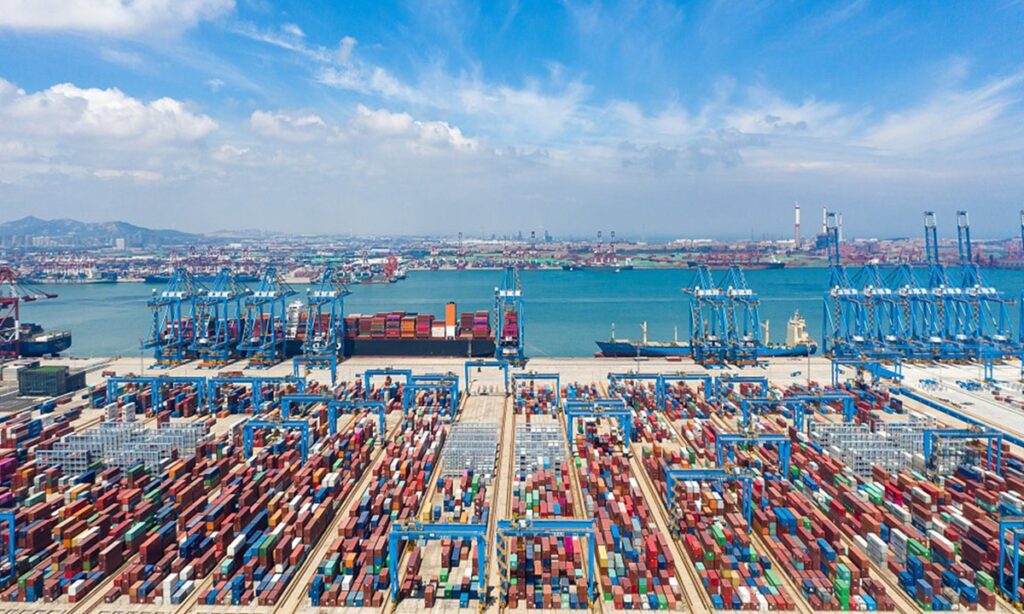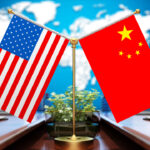Against the background of the 15th BRICS Summit in Johannesburg, South Africa this week, some Western public opinion leaders have again directed renewed suspicion to economic and trade cooperation between China and Russia.
Ever since the Ukraine crisis began, there has been no shortage of hostile voices in the West toward China’s trade with Russia, but the West is actually in no position to point a finger at normal economic cooperation between the two countries.
An article in The Wall Street Journal, entitled “Booming Trade With China Helps Boost Russia’s War Effort,” claimed on Monday that “China is playing an increasingly important role in propping up Russia’s economy and helping boost its war effort, with recent trade data showing Beijing providing a range of goods, including some with potential military applications such as microchips and trench-digging excavators.”
The article is one of the most prominent ones published recently in a new wave of US and Western media accusing China over its normal trade ties with Russia by distorting the nature of China-Russia trade.
If anything, such irrational speculation over the rapid growth in the bilateral trade between China and Russia is entirely groundless and reflects the consistent double standards of some US media organizations, especially as they completely turn a blind eye to trade activities by US allies with Russia.
For instance, while Japan followed the US and some European countries to impose certain trade sanctions on Russia, Japan’s exports to Russia jumped 25 percent year-on-year in July to about $348 million, according to Japan’s Ministry of Finance.
Even a country that sided with the US in supporting trade sanctions against Russia can substantially increase its exports to Russia. So why does the West always point a finger at and find fault with China’s trade with Russia, by distorting and playing up the political implications behind normal economic and trade cooperation?
This double standard and prejudice speak loudly to the West’s hypocrisy and selfishness in pursuing its geopolitical goals, with no regard for the economic consequences and difficulties facing the world economy and developing countries.
This is perhaps one of the reasons why the BRICS summit has attracted so much attention this year and why an increasing number of emerging market economies have been looking for fairer, safer global payment systems that can allow them trade settlement choices other than the US dollar-dominated system, and also prevent potential risks.
Whatever the US and the Western attitude is, they have no right to judge – let alone make decisions for – other countries, including China, India, Brazil, and South Africa, among others, over their trade ties with Russia or any other country.
Despite Western distortion and speculation, the development of China-Russia trade is based on the needs of the two countries’ domestic social and economic development.
With the enhancing mutual trust between China and Russia in recent years, there is no denying that bilateral economic and trade cooperation has entered a fast track. The increase in China’s exports of vehicles and mechanical and electronic products to Russia, and the surge in Russia’s energy and agricultural exports to China, are sufficient evidence that their bilateral trade is highly complementary and makes economic sense, rather than being politically driven.
As long as China’s foreign trade is in accordance with international norms and in line with the needs of both sides, there is actually no need for China or Russia to bother to consider the US or Western attitude toward trade, which reflects only hypocrisy and double standards.
(Global Times)




